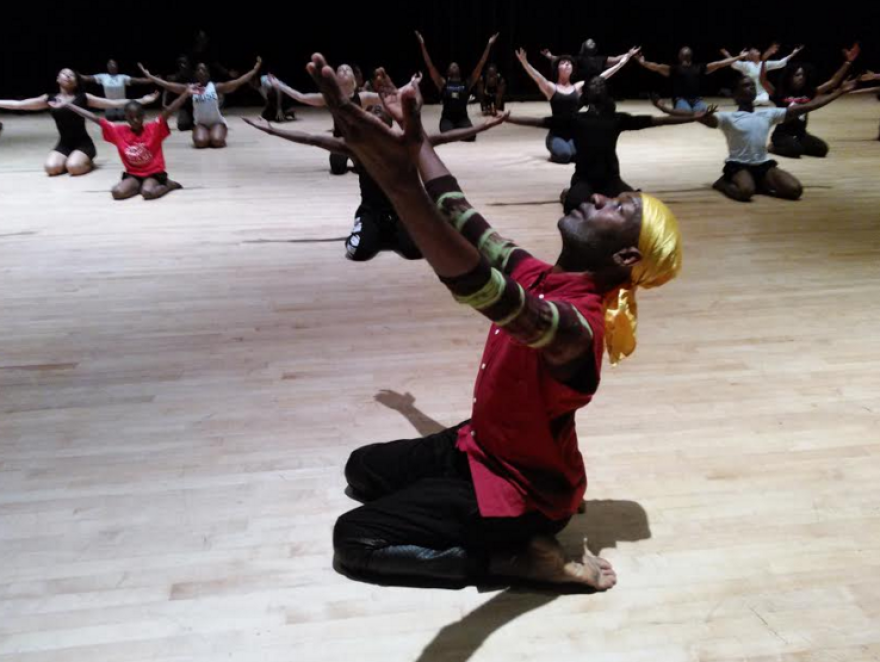“In Haiti, you always have the feeling it’s the first day. Every day is like Monday morning,” said Jean Guy Saintus, founder and director of Haitian dance companyAyikodans.
Whenever a dance performance is getting close, Saintus warns his dancers that this might be the only rehearsal they get.
“The piece needs to be ready tonight to be able to perform tomorrow. You never know what can happen tomorrow in Haiti,” he tells them.
In recent months, political turmoilin Haiti has led to widespread protests and violence around a presidential election gone awry.
Michel Martelly is no longer president of Haiti. A provisional government is to lead the country until a presidential election takes place.
Ayikodans was in Miami recently to perform at the Adrienne Arsht Center for the Performing Arts as part of the center’s 10-year anniversary. Company members and Saintus talked about what it’s like to create amid uncertainty.
Leading up the company’s performances at the Arsht Center, the already heated presidential election in Haiti imploded.
Protesters took to the streets, they burned tires and violence erupted.
“We lost two weeks,” said Saintus. “I didn’t have no one. No drummers. No dancers. And you cannot ask them either to come to rehearsal.”

Saintus is tall and thin. His bald head was covered with a satin yellow bandanna as he taught a community dance class in Haitian folklore in downtown Miami.
When class was over, he said, he was tired. Not from the dancing. From 28 years of leading a company that gets recognition and awards around the world, but very little financial support at home in Haiti.
“When we started back in 1988, I told myself you need to prove that you can do a good job and then things will move forward, and it’s not like this,” he said.
Christina Clodamir, a company member with Ayikodans, goes by her artist name Makeda. She’s also a yoga teacher and a painter.
“The dancing has to happen even though we don’t have all the funding, all the structure,” she said.
Makeda said the traditional and spiritual dances Ayikodans performs are unapologetically Haitian and they are a way to reclaim Haiti’s narrative.
“It’s really showing the soul of that Haitian-ness,” she said.
Mackenson Blanchard , another dancer with Ayikodans, said there are all sorts of logistical challenges to being an artist in Haiti—from a lack of transportation to get to rehearsals to not having the proper venue like a theater to perform in.
“You have to keep fighting,” he said.
There are days where Jean Guy Saintus, the company's director, feels he doesn’t have much fight left in him.
“I do it, but the fact I do not know how long I’ll be able to do it is kind of scary,” said Saintus.
He is a one-man band. Creative director. Teacher. Choreographer, Marketing director. Secretary.
But he says even through the hardships he finds sparks to keep creating.
“It can be inspiring because you have something to say. When you go on stage you have to bring something,” he said. “You can bring your reality.”
Saintus recently created a new dance called M’angaje. That roughly translates to, “I am committed,” in Creole.
It’s part spiritual tribute. It's part Vodou ceremony. It’s dancers seeking to cross over to the lwas, the spirits.
The new dance is also a metaphor for Ayikodans -- trying to make it in moments of uncertainty.
“I’m a fighter,” said Saintus. “I’m not saying I will win, but I will find a way to go across.”





